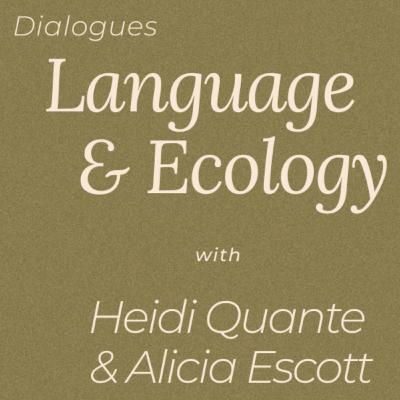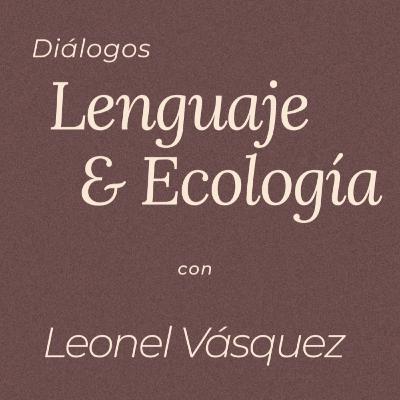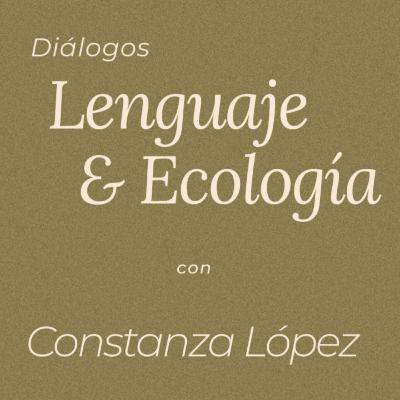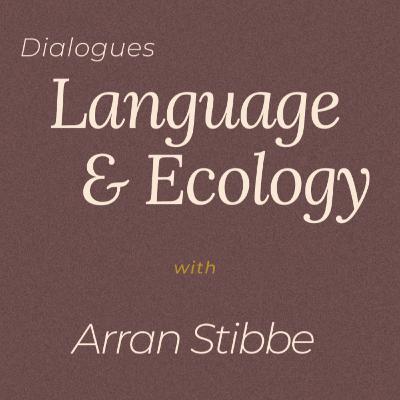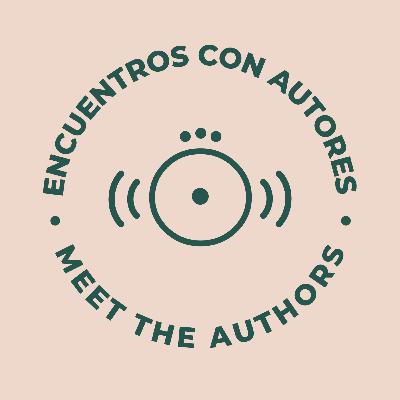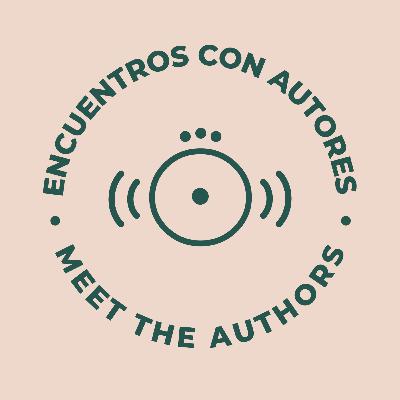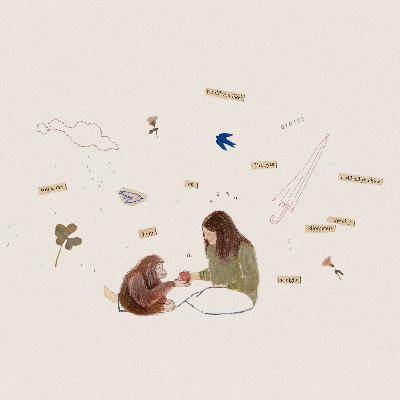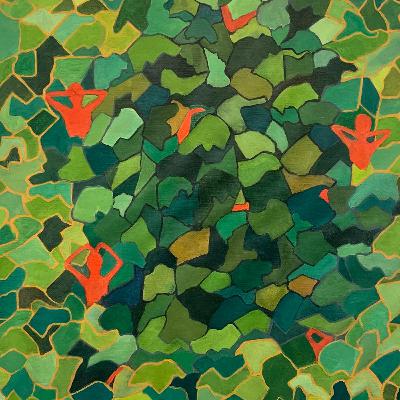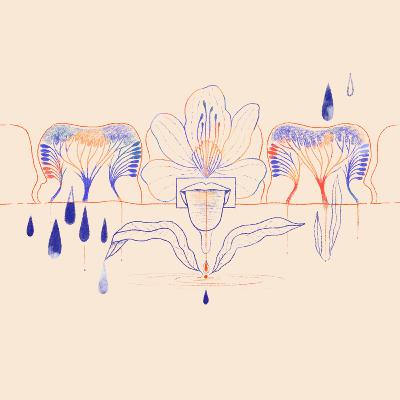Discover Wimblu
Wimblu

Wimblu
Author: Wimblu Studios
Subscribed: 3Played: 90Subscribe
Share
© Wimblu Studios
Description
En nuestro podcast entablamos conversaciones con profesionales de las ciencias naturales, publicamos encuentros con autores de nuestra revista y compartimos historias narradas de nuestros volúmenes para explorar las intersecciones entre ecología, cultura y espiritualidad.
In our podcast we engage in conversations with natural science professionals, publish encounters with authors from our magazine, and share narrated stories from our volumes, to explore the intersections between ecology, culture, and spirituality.
In our podcast we engage in conversations with natural science professionals, publish encounters with authors from our magazine, and share narrated stories from our volumes, to explore the intersections between ecology, culture, and spirituality.
61 Episodes
Reverse
Weaving the story of Irazú volcano with her own, in this text Diana traces the continuous transformations that follow a collision, wondering how to find peace in a disquieted body.Explore this story here: https://wimblu.com/en/volumen-10/diarios-volcanicos/ Listen to our podcast in your favorite platform: https://creators.spotify.com/pod/profile/wimblupod/ If you can, help us continue our mission to restore a sense of belonging and connection to the Earth through creative nonfiction stories. Join our community on Patreon here: https://www.patreon.com/join/wimblu?u=9846195 #paz #peace #conflicto #conflict #revistawimblu #capitaloceno #capitalocene #caos #chaos #khaos #storytelling #ecology #ecología #Earth #nonfiction #noficcion #documentalcreativo #creativedocumentary #wimblumagazine #costarica
Estas conversaciones son espacios para expandir nuestra percepción y entendimiento sobre el lenguaje, y cómo éste repercute en nuestra relación con nosotres mismes y el mundo más-que-humano. Con cada entrega profundizaremos en el proyecto, investigación o trabajo de nuestre invitade para reflexionar sobre su propia exploración del lenguaje y cómo se relaciona con las historias y conversaciones que buscamos generar desde el Volumen 9: Lenguaje. En el último episodio de esta serie conversamos con Cristóbal Ascencio, un fotógrafo y artista visual mexicano cuya obra explora la compleja relación entre imágenes y memoria, indagando en cómo construimos identidades y realidades a través de esta correspondencia. Su práctica trasciende la fotografía tradicional hacia nuevas formas de creación visual como la realidad virtual, la manipulación de datos y la fotogrametría.La obra de Cristóbal nos invita a profundizar en los límites del lenguaje documental, su relación con la tecnología, la percepción de la realidad y sobre lo que subyace la superficie de las imágenes. Esta conversación es una exploración sobre la dimensión ritualística de la práctica fotográfica y sobre cómo desde el lenguaje podemos construir otros mundos posibles y deconstruir los establecidos. Explorá el trabajo de Cristóbal visitando: https://cristobalascencio.com/ Visitá el Volumen 9 de Wimblu en www.wimblu.com Suscribite en nuestro boletín gratuito para enterarte de nuevas publicaciones, eventos y talleres de no ficción creativa aquí: https://wimblu.com/subscribe/ Seguí y suscribite a nuestro Podcast aquí: https://open.spotify.com/show/1pMQTzECLfxoHjDYqnwD1v Ayudanos a continuar con nuestra misión de reconocer y honrar la interconexión entre nuestros mundos humanos y más-que-humanos a través de la no ficción creativa de autor. Unite a nuestra comunidad en Patreon aquí: https://www.patreon.com/c/wimblu/membership Música: ‘Adrift’ por Hayden Folker.
These conversations are spaces to expand our perception and understanding of language, and how it impacts our relationship with ourselves and the more-than-human world. With each episode we will delve into our guest's project, research or work to reflect on their own exploration of language and how it relates to the stories and conversations we seek to generate from Volume 9: Language.Our guest for the fourth episode of this series are Heidi Quante and Alicia Escott, two interdisciplinary artists, founders of The Bureau of Linguistical Reality, a public participatory artwork focused on creating new language, as a way to better understand our rapidly changing world due to manmade climate change and other anthropogenic events. We spoke with Heidi and Alicia about the fundamental role language plays in how we experience and make sense of the world, and also about the ability to create new possibilities, relationships and different ways of being through language.To explore Heidi’s and Alicia’s work through The Bureau of Linguistical Reality visit: https://bureauoflinguisticalreality.com/Visit Wimblu's Volume 9 at www.wimblu.com Subscribe to our free Newsletter to get the latest news of events, publications and more here: https://wimblu.com/en/subscribe/ Follow and subscribe to our Podcast here: https://open.spotify.com/show/1pMQTzECLfxoHjDYqnwD1v Help us continue with our mission to recognize and honor the interconnectedness between our human and more-than-human worlds through author-driven creative nonfiction. Join our Patreon community here: https://www.patreon.com/c/wimblu/membership Músic: ‘Adrift’ by Hayden Folker.
Estas conversaciones son espacios para expandir nuestra percepción y entendimiento sobre el lenguaje, y cómo éste repercute en nuestra relación con nosotres mismes y el mundo más-que-humano. Con cada entrega profundizaremos en el proyecto, investigación o trabajo de nuestre invitade para reflexionar sobre su propia exploración del lenguaje y cómo se relaciona con las historias y conversaciones que buscamos generar desde el Volumen 9: Lenguaje. En el tercer episodio de esta serie conversamos con Leonel Vásquez, un artista sonoro colombiano que explora los sonidos y sus maneras sutiles de habitar los cuerpos, los espacios y paisajes. En sus proyectos se ha interesado en los límites de la escucha humana, la potencia de nuevos entornos sonoros, las formas de fijación y de memoria sonora, entre otros.El trabajo de Leonel nos invita a dirigir nuestra atención hacia los lenguajes no verbales de los ríos, de las piedras y otros seres del mundo más que-humano. Esta conversación es una exploración sobre la escucha, el cuerpo y el lenguaje no verbal como condiciones y sensibilidades necesarias para reconocer y participar de un mundo hablante.Conocé el trabajo de Leonel visitando: https://www.leonelvasquez.com/ Visitá el Volumen 9 de Wimblu en www.wimblu.com Suscribite en nuestro boletín gratuito para enterarte de nuevas publicaciones, eventos y talleres de no ficción creativa aquí: https://wimblu.com/subscribe/ Seguí y suscribite a nuestro Podcast aquí: https://open.spotify.com/show/1pMQTzECLfxoHjDYqnwD1v Ayudanos a continuar con nuestra misión de reconocer y honrar la interconexión entre nuestros mundos humanos y más-que-humanos a través de la no ficción creativa de autor. Unite a nuestra comunidad en Patreon aquí: https://www.patreon.com/c/wimblu/membership Música: ‘Adrift’ por Hayden Folker.
Estas conversaciones son espacios para expandir nuestra percepción y entendimiento sobre el lenguaje, y cómo éste repercute en nuestra relación con nosotres mismes y el mundo más-que-humano. Con cada entrega profundizaremos en el proyecto, investigación o trabajo de nuestre invitade para reflexionar sobre su propia exploración del lenguaje y cómo se relaciona con las historias y conversaciones que buscamos generar desde el Volumen 9: Lenguaje. En este encuentro conversamos con Constanza López Cabello, Autora y Editora Web en Revista Endémico. Ella es Licenciada en Letras Hispánicas, con un máster en Historia de la Ciencia, y se dedica principalmente a la comunicación de temas ambientales y culturales; y a la edición de textos. Endémico es un proyecto que resuena de muchas maneras con el trabajo que hacemos desde Wimblu, por eso nos pareció importante conversar con Constanza sobre cómo exploran el tema del ‘lenguaje’, en su más reciente publicación ‘Descolonizar Naturalezas’.Visitá Revista Endémico aquí: www.endemico.org Visitá el Volumen 9 de Wimblu en www.wimblu.com Suscribite en nuestro boletín gratuito para enterarte de nuevas publicaciones, eventos y talleres de no ficción creativa aquí: https://wimblu.com/subscribe/ Seguí y suscribite a nuestro Podcast aquí: https://open.spotify.com/show/1pMQTzECLfxoHjDYqnwD1v Ayudanos a continuar con nuestra misión de reconocer y honrar la interconexión entre nuestros mundos humanos y más-que-humanos a través de la no ficción creativa de autor. Unite a nuestra comunidad en Patreon aquí: https://www.patreon.com/c/wimblu/membership Música: ‘Adrift’ por Hayden Folker.
These conversations are spaces to expand our perception and understanding of language, and how it impacts our relationship with ourselves and the more-than-human world. With each episode we will delve into our guest's project, research or work to reflect on their own exploration of language and how it relates to the stories and conversations we seek to generate from Volume 9: Language.Our guest for the first episode of this series is Arran Stibbe, a Professor of Ecological Linguistics at the University of Gloucestershire and a prolific author on the subject. His research and teaching combines his academic background in both linguistics and human ecology. This conversation with Arran is a beautiful exploration on how eco-linguistics can transform the way we perceive other beings and our co-existence with them.To access Arran’s Ecolinguistics free online course you can visit: www.storiescourse.org Visit Wimblu's Volume 9 'Language' at www.wimblu.com Subscribe to our free Newsletter to get the latest news of events, publications and more here: https://wimblu.com/en/subscribe/ Follow and subscribe to our Podcast here: https://open.spotify.com/show/1pMQTzECLfxoHjDYqnwD1v Help us continue with our mission to recognize and honor the interconnectedness between our human and more-than-human worlds through author-driven creative nonfiction. Join our Patreon community here: https://www.patreon.com/c/wimblu/membership Músic: ‘Adrift’ by Hayden Folker.
Encuentro con autores | ‘Cuerpo Lengua ’ con Mariana Matija Entre las muchas cosas que despierta el texto ‘Lengua’ que Mariana escribió para el noveno volumen de la Revista Multimedia Wimblu dedicado al ‘Lenguaje’, destaca el juego entre lo que está adentro y afuera de nuestros cuerpos, que nos invita a pensar la lengua cómo algo que contenemos y, al mismo tiempo, nos contiene.Escuchá esta conversación en donde Mariana reflexiona sobre la cualidad transformadora del lenguaje, sobre cómo las historias que contamos determinan nuestra relación con el mundo, y el proceso creativo del texto ‘Lengua’. Para leer ‘Lengua’ visitá: https://wimblu.com/volumen-9/lengua/ Suscribite en nuestro boletín gratuito para enterarte de nuevas publicaciones, eventos y talleres de no ficción creativa aquí: https://wimblu.com/subscribe/ Seguí y suscribite a nuestro Podcast aquí: https://open.spotify.com/show/1pMQTzECLfxoHjDYqnwD1v Ayudanos a continuar con nuestra misión de reconocer y honrar la interconexión entre nuestros mundos humanos y más-que-humanos a través de la no ficción creativa de autor. Unite a nuestra comunidad en Patreon aquí: https://www.patreon.com/c/wimblu/membership
In this episode we speak with Susanne Paola Antonetta, author of the essay ‘Language Garden’ featured on Wimblu’s Magazine Volume 9, dedicated to Language. Based on her encounter with Chantek, a signing orangutan, Susanne's text leads us to profound reflections on ethics: what are we provoking in the minds of animals when we impose human learning on them? How much does 'giving them a language' bring us closer or further away from a recognition of the agency, intelligence and consciousness of these non-human beings? Are we still thinking about consciousness under anthropocentric bias? Listen to Susanne talk about her experience meeting Chantek, a signing orangutan, and the impact this encounter had on her way of relating to language, consciousness and the more-than-human world.To read ‘Language Garden’ by Susanne Paola Antonetta visit: https://wimblu.com/en/volumen-9/jardin-del-lenguaje/ Subscribe to our free Newsletter to get the latest news of events, publications and more here: https://wimblu.com/en/subscribe/ Follow and subscribe to our Podcast here: https://open.spotify.com/show/1pMQTzECLfxoHjDYqnwD1vHelp us continue with our mission to recognize and honor the interconnectedness between our human and more-than-human worlds through author-driven creative nonfiction. Join our Patreon community here: https://www.patreon.com/c/wimblu/membership
Meet the Authors | ‘Language & Landscape’ with Len Murusalu & Alessandra Baltodano.In this episode we speak with Len Murusalu, author of the short film ‘After Betelgeuse’ and Alessandra Baltodano, author of the multimedia ‘(silence)’. Both stories are part of Volume 9 ‘Language’ of Wimblu Magazine. On one hand Len explores language as a being with its own agency that emerges from the landscape and flows through the bodies of the people that inhabit it. On the other hand, Alessandra’s story recognizes a need to quiet the discursive mind in order to listen to the world, and to connect with the landscapes we inhabit.Listen to both authors speak about their creative processes of each story and the way their exploration of language has opened up different ways to relate to the landscape. To watch ‘After Betelgeuse’ by Len Murusalu visit: https://wimblu.com/en/volumen-9/tras-betelgeuse/ To read ‘(silence)’ by Alessandra Baltodano visit: https://wimblu.com/en/volumen-9/silencio/ Subscribe to our free Newsletter to get the latest news of events, publications and more here: https://wimblu.com/en/subscribe/ Follow and subscribe to our Podcast here: https://open.spotify.com/show/1pMQTzECLfxoHjDYqnwD1vHelp us continue with our mission to recognize and honor the interconnectedness between our human and more-than-human worlds through author-driven creative nonfiction. Join our Patreon community here: https://www.patreon.com/c/wimblu/membership
En esta conversación partimos de las historias ‘Desierto’ por Francisco Provedo y Monumentos por Pablo Franceschi. Por un lado, Desierto nos presenta la idea del lenguaje como una herramienta de colonización, que invisibiliza a ciertos seres vivos y las múltiples y diversas relaciones que existen en un territorio para finalmente convertir al paisaje en un lugar explotable y adquirir poder sobre el mismo. Por otro lado, en Monumentos el lenguaje es explorado como una manera de crear sentido desde un lugar más íntimo, pero apunta a esa misma cualidad del lenguaje: la de incidir en el mundo, no solamente en el mundo material, sino también espiritual. Escuchá esta conversación en donde los autores profundizan en cómo estas dos exploraciones y perspectivas sobre el lenguaje convergen en distintos lugares en sus procesos creativos Mira Desierto por Francisco Provedo Explorá ‘Monumentos’ por Pablo FranceschiSuscribite en nuestro boletín gratuito para enterarte de nuevas publicaciones, eventos y talleres de no ficción creativa aquí: Seguí y suscribite a nuestro Podcast aquí.Ayudanos a continuar con nuestra misión de reconocer y honrar la interconexión entre nuestros mundos humanos y más-que-humanos a través de la no ficción creativa de autor. Unite a nuestra comunidad en Patreon aquí.
The stories we discussed in this ‘Meet the Authors’ are part of a chapter of Volume 9: Language, in which we explore and give space to stories that motivate us to imagine other languages, and other forms of non-human languages that allow us to somehow put ourselves in the skin of the other. This non-human skin, in Transliteration by US artist Nethery Wylie, is placed in the skin of trees and plants; and on the other hand, in Oseni by Australian artist Lawrence English, it is placed in the skin of the Pacific Ocean.Listen to both authors speak about their creative processes of each story and the way contemplation and listening practices play a role in their craft. Read Transliteration by Nethery Wylie.Listen to Oseni by Lawrence English.Subscribe to our free Newsletter to get the latest news of events, publications and more here .Follow and subscribe to our Podcast here.Help us continue with our mission to recognize and honor the interconnectedness between our human and more-than-human worlds through author-driven creative nonfiction. Join our Patreon community here.
Following her encounter with Chantek, the orangutan that learned sign language, Susanne ponders on the relationship between language, time and consciousness, questioning the preconceptions that have shaped our relationship to the nonhuman world.
This story is part of Volume 9 of Wimblu Magazine. You can read this text here
Text & narration: Susanne Paola Antonetta
Illustration: María Paula Filippelli
United States, 2005-2024
Published in January 2025
Volume 9, Issue 12
To read this and other stories visit our multimedia magazine at www.wimblu.com
Support our project by joining our Patreon Community or you subscribing to our Newsletter here.
As she tries to draw a tree, Nethery entertains the idea of plant bodies as signs, recognizing in the process how corporeal language is and how coming back to our own bodies may help us recognize the languages of others.
This story is part of Volume 9: Language https://wimblu.com/en/volumen-9/transliteracion/
Text, narration & illustrations by Nethery Wylie
United States, 2024.
Published in November, 2024.
Volume 9, Issue 7.
En este episodio conversamos con la bióloga costarricense Laura May Collado. Laura es investigadora y profesora en la Universidad de Vermont donde se dedica a estudiar el repertorio de sonidos que emiten los cetáceos. Su investigación se centra en los factores que han determinado la historia evolutiva de la comunicación acústica de estos mamíferos acuáticos.
Con una sensibilidad profunda, Laura nos comparte sobre el fascinante campo de la bioacústica, sobre las implicaciones éticas de todo lo que se está descubriendo a través del sonido, y sobre el poder transformador de la escucha profunda para crear un mundo en donde todos los seres puedan seguir cantando.
Ayudanos a sostener estos espacios uniéndote a nuestra comunidad en Patreon, donde además podrás acceder a contenido especial. Solo en colectivo y en comunidad proyectos como el nuestro pueden sostenerse en el tiempo. ¡Unite aquí!
En este texto lleno de portales, Mariana saborea las palabras y juega con ellas para revelarnos todo lo que la lengua hace posible y todo lo que hace posible la lengua.
Esta historia forma parte del Volumen 9: Lenguaje: https://wimblu.com/volumen-9/lengua/
Texto, narración e ilustración: Mariana Matija
Colombia, 2024.
Publicada en Octubre 2024.
Volumen 9, Número 1.
Fernando Chaves, a costarican film critic and writer of the text 'Can Volcanoes Love?' featured on Wimblu's creative documentary column, and inspired on the film 'Fire of Love', interviews Sara Dosa, an award-winning documentary director and producer from United States, whose interests lay in telling unexpected character-driven stories about ecology, economy and community, and director of the documentary 'Fire of Love', an extraordinary love story of the intrepid French scientists Katia and Maurice Krafft, who dedicated their lives to the understanding of their greatest passion: volcanoes.
Fernando is author of the column of Wimblu Magazine's Volume 8: Desire.
Read 'Can Volcanoes Love?' by Fernando Chaves here: https://wimblu.com/en/volumen-8/pueden-los-volcanes-amar/
We spoke with Hõbe Ilus, an estonian filmmaker interested in exploring perception and memory through her work, author of the short film 'The Slow Path Home', a film that emerged from the filmmaker's desire to make peace with the place she once called home. She is author of Wimblu Magazine's Volume 8: Desire.
Watch 'The Slow Path Home' by Hõbe Ilus here: https://wimblu.com/en/volumen-8/el-lento-camino-a-casa/
Hablamos con Soledad Barruti, periodista y escritora de Argentina, que trabaja en temas vinculados a la alimentación y los territorios, autora del texto 'Oda a la intensidad', una invitación a dejarnos afectar profundamente por toda la belleza y el dolor de la vida. Y con Emiliano Zúñiga, exponente de la fotografía poética costarricense quien a través de su trabajo busca establecer una relación entre lo onírico y la cotidianidad, también es el autor del foto ensayo 'Paraíso (Anzuelos)', una exploración sobre aquello que brilla y nos guía. Ambas historias son parte del Volumen 8: Deseo de la revista digital Wimblu.
Leé 'Oda a la intensidad' por Soledad Barruti aquí: https://wimblu.com/volumen-8/oda-a-la-intensidad/
Explorá 'Paraíso (Anzuelos)' por Emiliano Zúñiga aquí: https://wimblu.com/volumen-8/paraiso-anzuelos/
We spoke with Karmit Even Zur, an artist from United Kingdom whose practice revolves around the dynamic interactions between humans and the non-human world, author of 'Nashwat al 3obour', a text where Karmit reflects on the human desire to connect with the unseen, and how pleasure may give us access to the land's own imagination and desires. On the other hand, we spoke with Hanna Laura Kaljio, an estonian writer who through her work explores the interrelationship between creativity, movement and belonging in an era of climate change, she is the authore of 'Longing of the Migrant Waters, a text where Hanna traces the wayfaring Abhisarika Nayika as a gateway into thinking desire, movement and belonging as braided, after witnessing the ways of water through those who live the landscapes of India.
Both of them are authors of Wimblu Magazine's Volume 8: Desire.
Read 'Nashwat al 3obour' by Karmit Even Zur here: https://wimblu.com/en/volumen-8/nashwat-al-3obour/
Read 'Longing of the Migrant Waters' here: https://wimblu.com/en/volumen-8/anhelo-de-las-aguas-migratorias/
Witnessing the ways of water through those who live the landscapes of India, Hanna Laura traces the wayfaring Abhisarika Nayika as a gateway into thinking desire, movement and belonging as braided.
This story was published in our Volume 8: Desire
https://wimblu.com/en/volumen-8/anhelo-de-las-aguas-migratorias/
Text and narration: Hanna Laura Kaljo
Illustration: Francisca Álvarez
England. 2023
Published in January, 2024
Volume 8, Issue 8
To read this and other stories visit our digital magazine at www.wimblu.com




